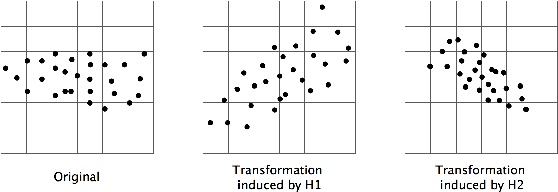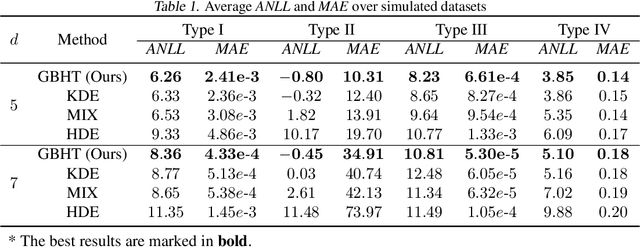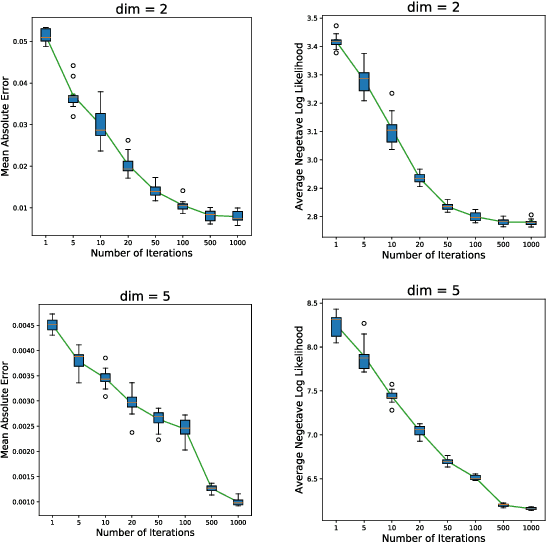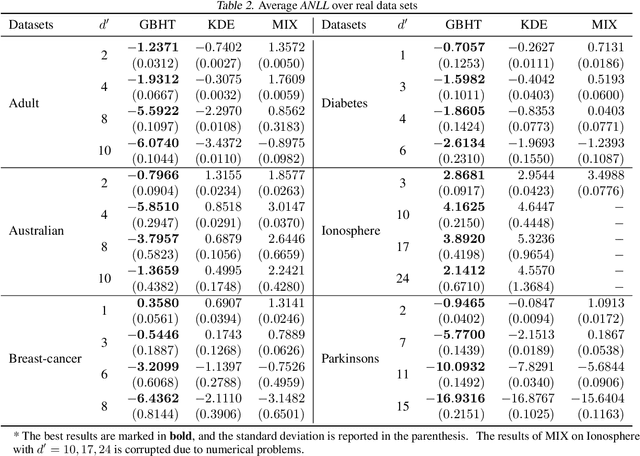GBHT: Gradient Boosting Histogram Transform for Density Estimation
Paper and Code
Jun 10, 2021



In this paper, we propose a density estimation algorithm called \textit{Gradient Boosting Histogram Transform} (GBHT), where we adopt the \textit{Negative Log Likelihood} as the loss function to make the boosting procedure available for the unsupervised tasks. From a learning theory viewpoint, we first prove fast convergence rates for GBHT with the smoothness assumption that the underlying density function lies in the space $C^{0,\alpha}$. Then when the target density function lies in spaces $C^{1,\alpha}$, we present an upper bound for GBHT which is smaller than the lower bound of its corresponding base learner, in the sense of convergence rates. To the best of our knowledge, we make the first attempt to theoretically explain why boosting can enhance the performance of its base learners for density estimation problems. In experiments, we not only conduct performance comparisons with the widely used KDE, but also apply GBHT to anomaly detection to showcase a further application of GBHT.
 Add to Chrome
Add to Chrome Add to Firefox
Add to Firefox Add to Edge
Add to Edge